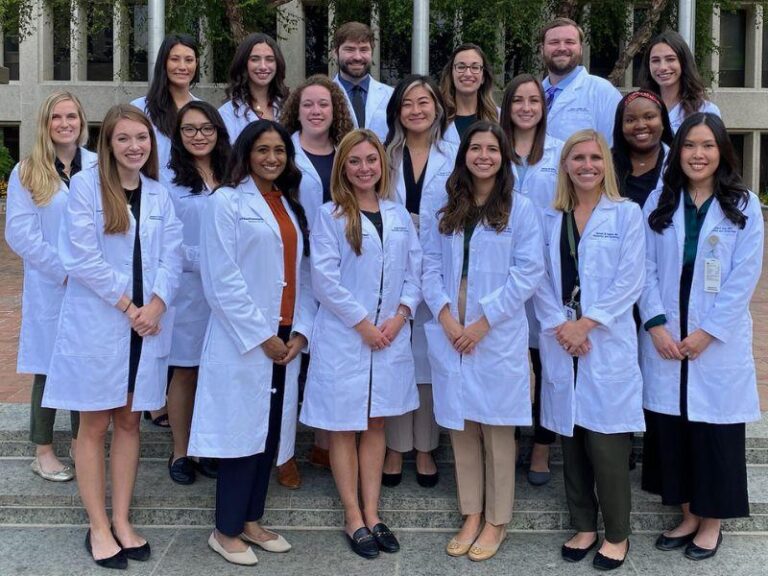Transforming Women’s Health: A Fresh Perspective on UT Southwestern’s Ob/Gyn Residency Program
Comprehensive Training and Innovative Curriculum at UT Southwestern
UT Southwestern’s Obstetrics and Gynecology residency program is recognized nationally for its rigorous and multifaceted training approach. Nestled within a top-tier academic medical institution, the program offers residents an immersive experience that balances clinical mastery with pioneering research in women’s health. As the healthcare landscape evolves, the program equips future obstetricians and gynecologists with the skills necessary to address the intricate healthcare needs of diverse populations, while nurturing leadership qualities and scholarly excellence.
The curriculum is designed to provide a broad yet detailed education, encompassing everything from advanced surgical techniques and management of high-risk pregnancies to preventive care and wellness strategies. Residents benefit from an interdisciplinary framework that integrates rotations in specialized fields such as Maternal-Fetal Medicine, Gynecologic Oncology, and Reproductive Endocrinology. This structure ensures a well-rounded expertise grounded in evidence-based practice and hands-on learning.
Hands-On Clinical Experience and Rotations: Building Expertise Through Practice
Residents at UT Southwestern engage in a carefully curated rotation schedule that spans the full spectrum of Obstetrics and Gynecology. Core rotations include labor and delivery, gynecologic oncology, maternal-fetal medicine, and reproductive endocrinology, each blending direct patient care with advanced simulation training. This dual approach allows residents to refine their procedural skills and clinical judgment in both routine and complex scenarios.
Collaboration is a cornerstone of the program, with residents working alongside anesthesiologists, neonatologists, social workers, and other specialists to deliver holistic patient care. The following table outlines the primary rotations and their focus areas:
| Rotation | Duration | Key Focus |
|---|---|---|
| Labor & Delivery | 6 months | Management of high-risk pregnancies, vaginal and cesarean births |
| Gynecologic Oncology | 4 months | Cancer detection, surgical oncology interventions |
| Reproductive Endocrinology | 3 months | Infertility management, hormonal treatment protocols |
In addition to clinical rotations, residents participate in weekly simulation labs and laparoscopic workshops, enhancing their technical proficiency. Interdisciplinary case conferences further enrich their learning, fostering a culture of continuous improvement and innovation.
Faculty Perspectives: Mentorship and Research as Pillars of Resident Development
Faculty at UT Southwestern emphasize the vital role of mentorship intertwined with research throughout the residency journey. The program’s mentorship model extends beyond clinical guidance, encouraging residents to cultivate intellectual curiosity and contribute to scientific advancements. Experienced mentors provide tailored support, helping residents align their clinical experiences with meaningful research projects.
This collaborative environment promotes leadership in research, with residents often spearheading studies that bridge clinical practice and novel methodologies. Faculty highlight several core components of this approach:
- Consistent one-on-one mentorship sessions to refine research objectives and troubleshoot challenges.
- Engagement in interdisciplinary research collaborations that integrate diverse expertise.
- Application of evidence-based medicine principles in everyday clinical decisions.
- Opportunities to disseminate research findings at regional and national conferences, enhancing professional development.
Guidance for Applicants: Navigating the UT Southwestern Ob/Gyn Residency Selection
Prospective residents aiming to join UT Southwestern’s Ob/Gyn program should focus on building a strong clinical foundation while demonstrating enthusiasm for innovation in women’s health. Excelling in rotations that emphasize surgical skills and maternal-fetal medicine can showcase adaptability and competence. Equally important are interpersonal skills—effective communication and teamwork are highly valued traits that contribute to compassionate, efficient patient care.
Applicants are encouraged to highlight their research involvement, leadership roles, and community service activities, reflecting a well-rounded commitment to the specialty. Preparing thoroughly for interviews by understanding the program’s unique strengths and formulating insightful questions can significantly enhance candidacy. Mentorship from current or former residents can provide invaluable insider perspectives to tailor applications effectively.
| Desired Attribute | Significance |
|---|---|
| Clinical Proficiency | Prepares residents for diverse and complex patient care scenarios |
| Research Engagement | Reflects dedication to advancing women’s health knowledge |
| Leadership Potential | Equips residents for future academic and administrative roles |
| Community Involvement | Demonstrates commitment beyond clinical responsibilities |
Conclusion: Shaping Future Leaders in Women’s Health
In conclusion, UT Southwestern’s Obstetrics and Gynecology residency program remains a distinguished leader in training the next wave of women’s health experts. Its comprehensive curriculum, emphasis on cutting-edge research, and dedication to patient-centered care collectively prepare residents to excel in a rapidly evolving medical field. As the program continues to innovate and uphold its reputation for excellence, it plays a crucial role in advancing both medical education and clinical practice in obstetrics and gynecology.







